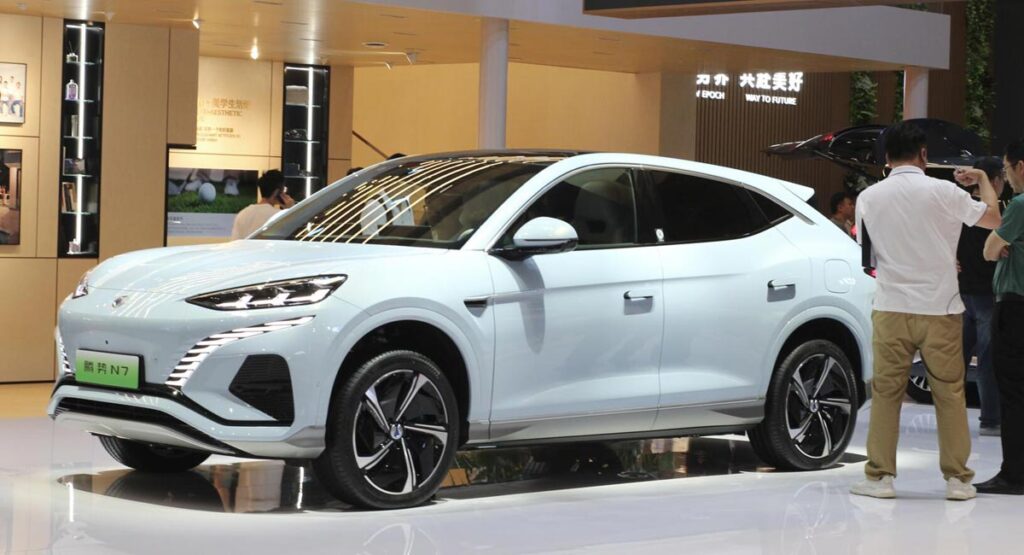The first availability of BYD‘s city pilot assisted driving feature will be March 30, and the Denza N7 will be the first model to be able to use it, according to local media.

(Image credit: CnEVPost)
BYD (OTCMKTS: BYDDF) is focusing on smart driving features like never before, and will start making its in-house developed ADAS (Advanced Driver Assistance System) feature available on urban roads by the end of next month, according to a new report.
The first availability of BYD’s city pilot assisted driving feature will be March 30, and the Denza-branded N7 SUV will be the first of the group’s 20-plus existing models to get the feature, LatePost said in a February 5 report, citing several people familiar with the matter.
Major cities, including Shenzhen, where BYD is headquartered, will be among the first to have access to the feature, the report said, citing a person close to BYD. But as of now, the only city close to availability is Shenzhen, according to the report.
Before 2023, almost all of BYD’s sales came from the mass market, where an RMB 20,000 ($2,780) cheaper price tag was more important than having advanced smart driving features, the report noted.
But now, BYD’s own situation and the external environment are changing.
BYD is entering the premium market through its Denza, Fang Cheng Bao and Yangwang brands. Meanwhile, Huawei, Xpeng (NYSE: XPEV), and Li Auto (NASDAQ: LI) are making smart driving standard in high-end cars.
Smart driving has thus risen in importance for BYD, and the company wants to give the market a sense of how much it values it as soon as possible, the LatePost report noted.
BYD is trying to replicate the success of its electrification transition to smart driving, hoping to master the core components by in-house research and investing in human resources on a massive scale to make up for the progress in speed, the report said.
BYD unveiled the Xuanji Architecture as the centerpiece of its vehicle intelligence at a January 16 event in Shenzhen.
The company’s chairman and president, Wang Chuanfu, said at the time that BYD has a smart driving team of more than 4,000 people, with over 3,000 being software engineers.
For comparison, Li Auto, Xpeng, and Nio (NYSE: NIO) have around 1,000 to 1,500 smart driving researchers and developers.
BYD will invest RMB 100 billion in intelligence in the future to lead the way in new energy vehicle (NEV) development, Wang said in January.
In the future, BYD’s high-level intelligent driving system will be standard on its models priced at more than RMB 300,000, and optional on models priced between RMB 200,000 and RMB 300,000, Wang said in January.
BYD vehicles equipped with the L2 smart driving system have surpassed 2.6 million units, Wang said in January, adding that more than 57 percent of BYD’s vehicles sold in 2023 are equipped with the smart driving system.
Previously, BYD has partnered with suppliers including Momenta and DJI on smart driving systems, with direct sourcing accelerating their use and lowering costs, LatePost’s report noted.
But as the importance of smart driving features increases, BYD is starting to expand the use of its own algorithms.
BYD plans to use its in-house developed algorithms in some versions of the 2024 facelifts of the Han and Tang models in the Dynasty lineup, and will no longer work with suppliers, LatePost said, citing a person familiar with the matter.
($1 = RMB 7.1916)
BYD unveils vehicle intelligence strategy, aims to invest over $14 billion

